Grandma's Secret
Empowering Women through Solar Powered Herbal Teas
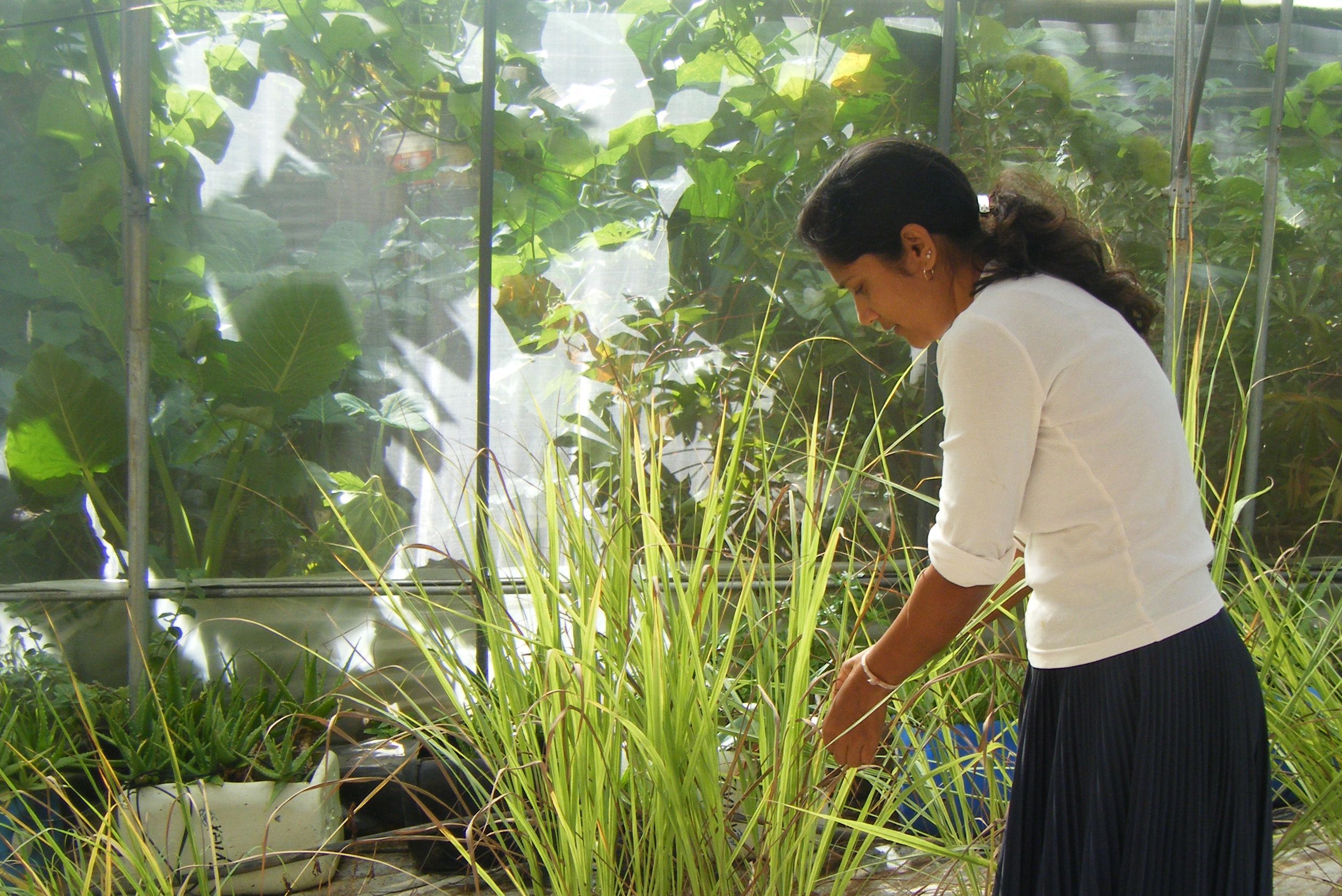
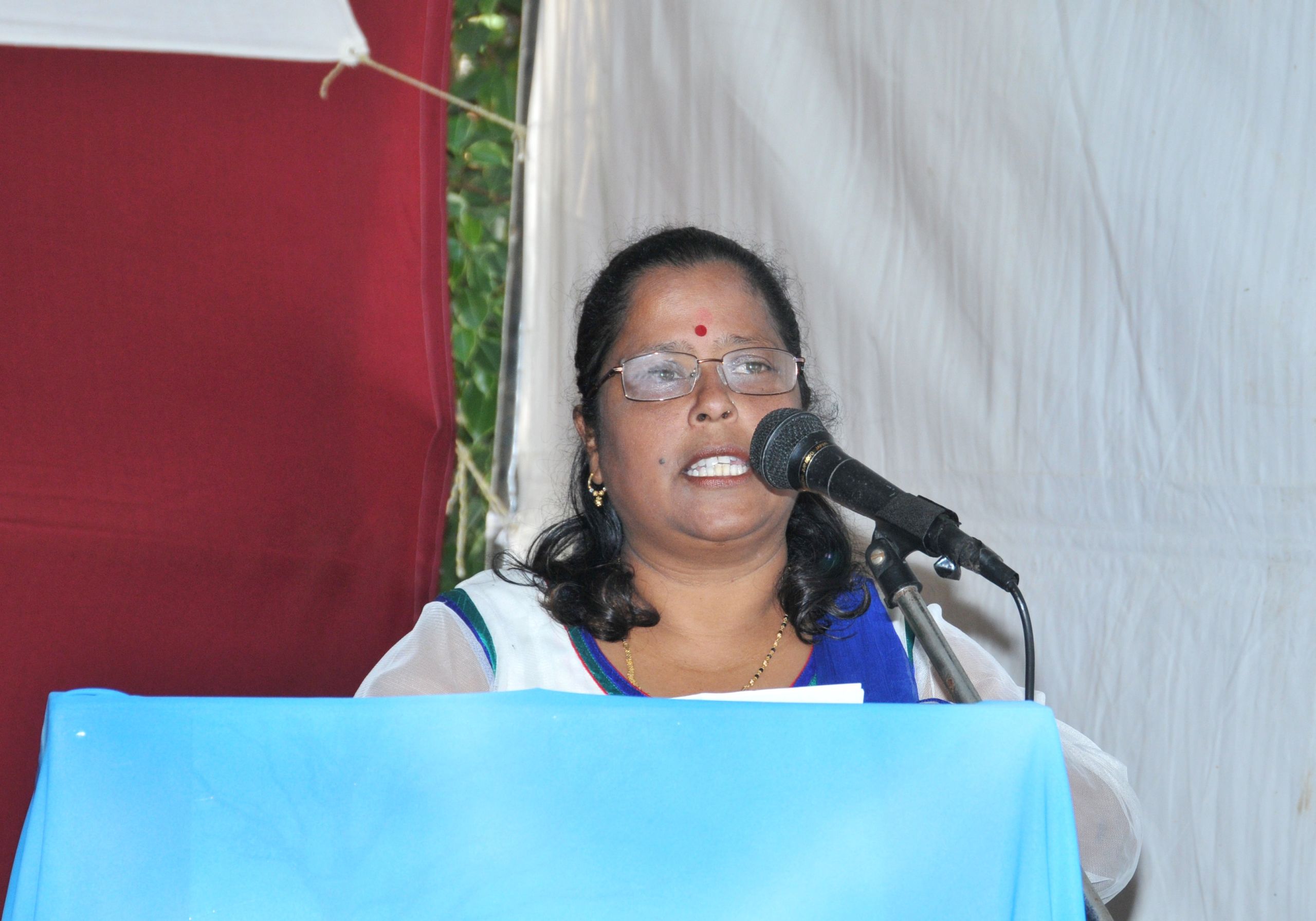
Anooradah Pooran, Founder of the Association Pour l’Education des Enfants Défavorisés (APEDED).
Anooradah Pooran, Founder of the Association Pour l’Education des Enfants Défavorisés (APEDED).
The 1980's textile boom in Mauritius drove many women to work in textile factories. However, when the textile factories closed, women became unemployed and could no longer send their children to school.
"Women were still jobless, staying at home, suffering from domestic violence and having babies almost every year. So in 2006, after meeting with 20 women, all of them unemployed mothers, we decided to use their traditional knowledge about conservation to cultivate medicinal plants, conserve biodiversity and improve their livelihood." - Anooradah Pooran
That was the beginning of the journey started by Anooradah Pooran, a textile worker and founder of the Association Pour l’Education des Enfants Défavorisés (APEDED).
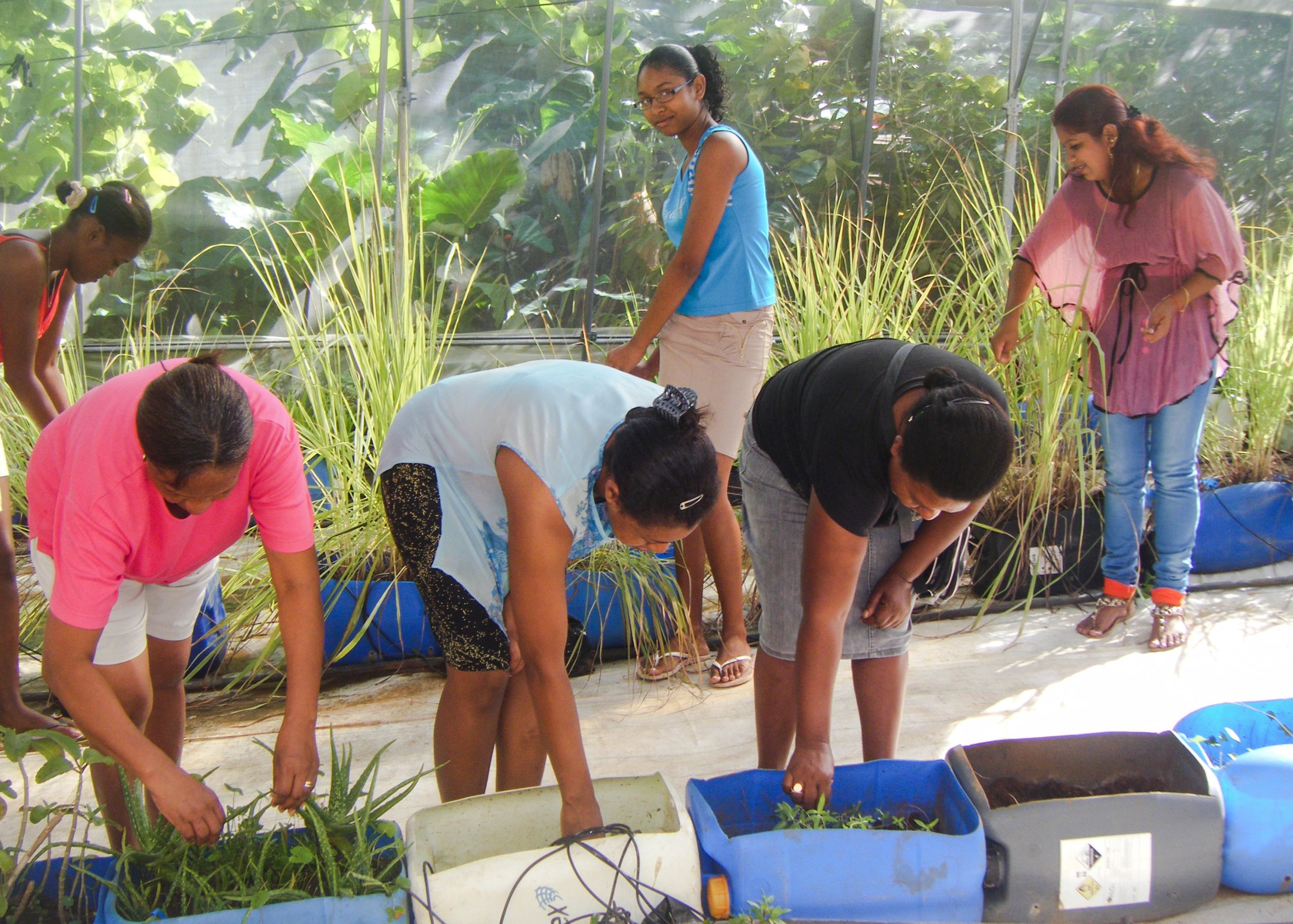
Using traditional knowledge to protect biodiversity
In 2007, the GEF Small Grants Programme, implemented by UNDP, supported APEDED in their efforts to protect endemic and native plant species by establishing a medicinal plant nursery, on top of a daycare for children, to produce herbal teas. The women brought their children to the daycare, then worked in the facility to sustainably harvest and use medicinal plants. The project also aimed to generate a stable source of income for the women.
The exploration of women’s unique knowledge to increase their income is a very innovative way of women empowerment which echoes 2019 International Women’s Day’s theme: Think Equal, Build Smart, Innovate for Change.
Through the project the women were trained by the Government Agricultural Research and Extension Unit in nursery management and cultivation of medicinal plants, harvesting and dehydration techniques to produce tea, as well as packaging and marketing of the herbal teas. A dehydrator was installed in the daycare’s small kitchen. In the mornings, the mothers came to water the plants and after school hours they returned to dehydrate the leaves and package tea.
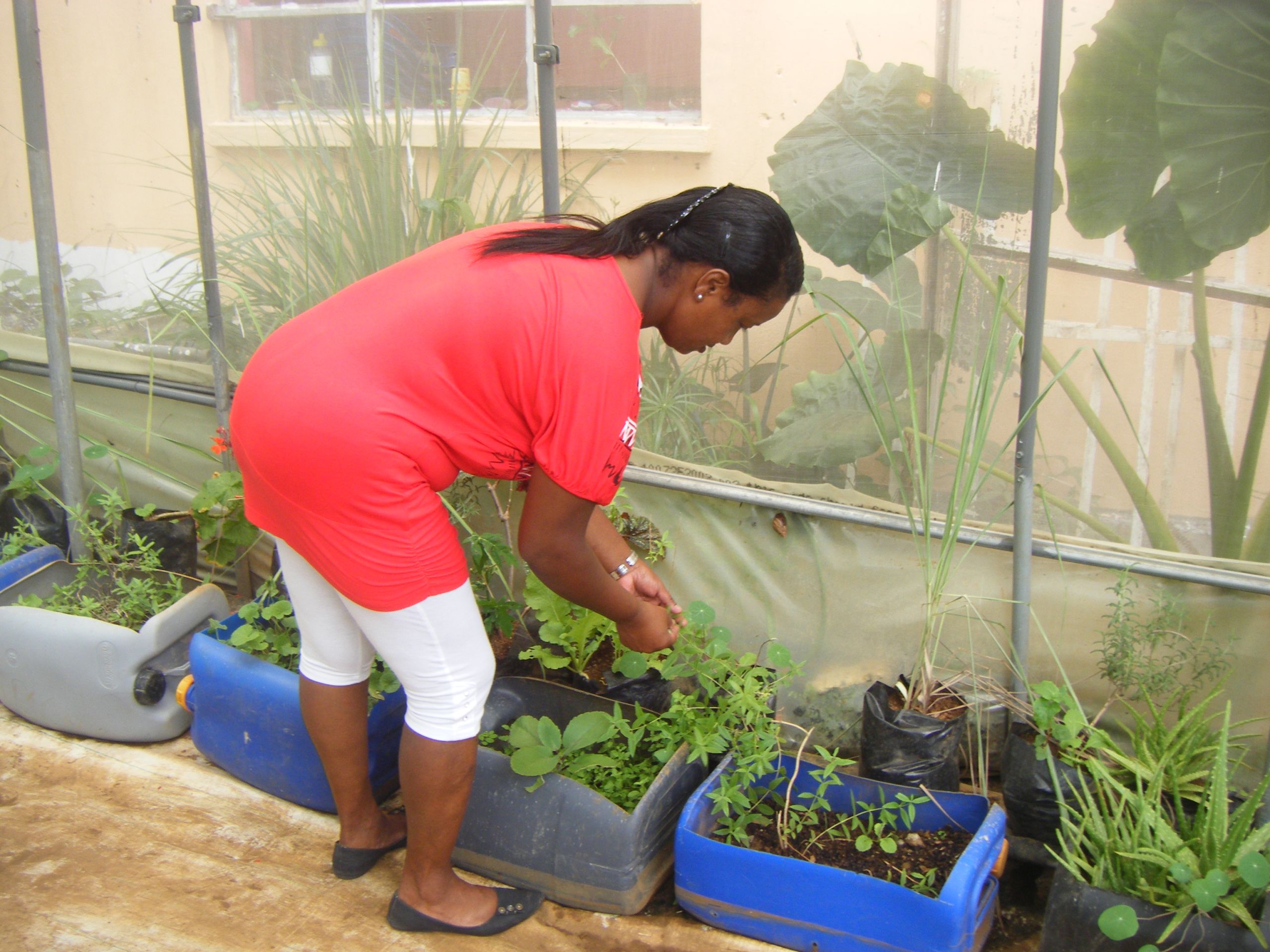
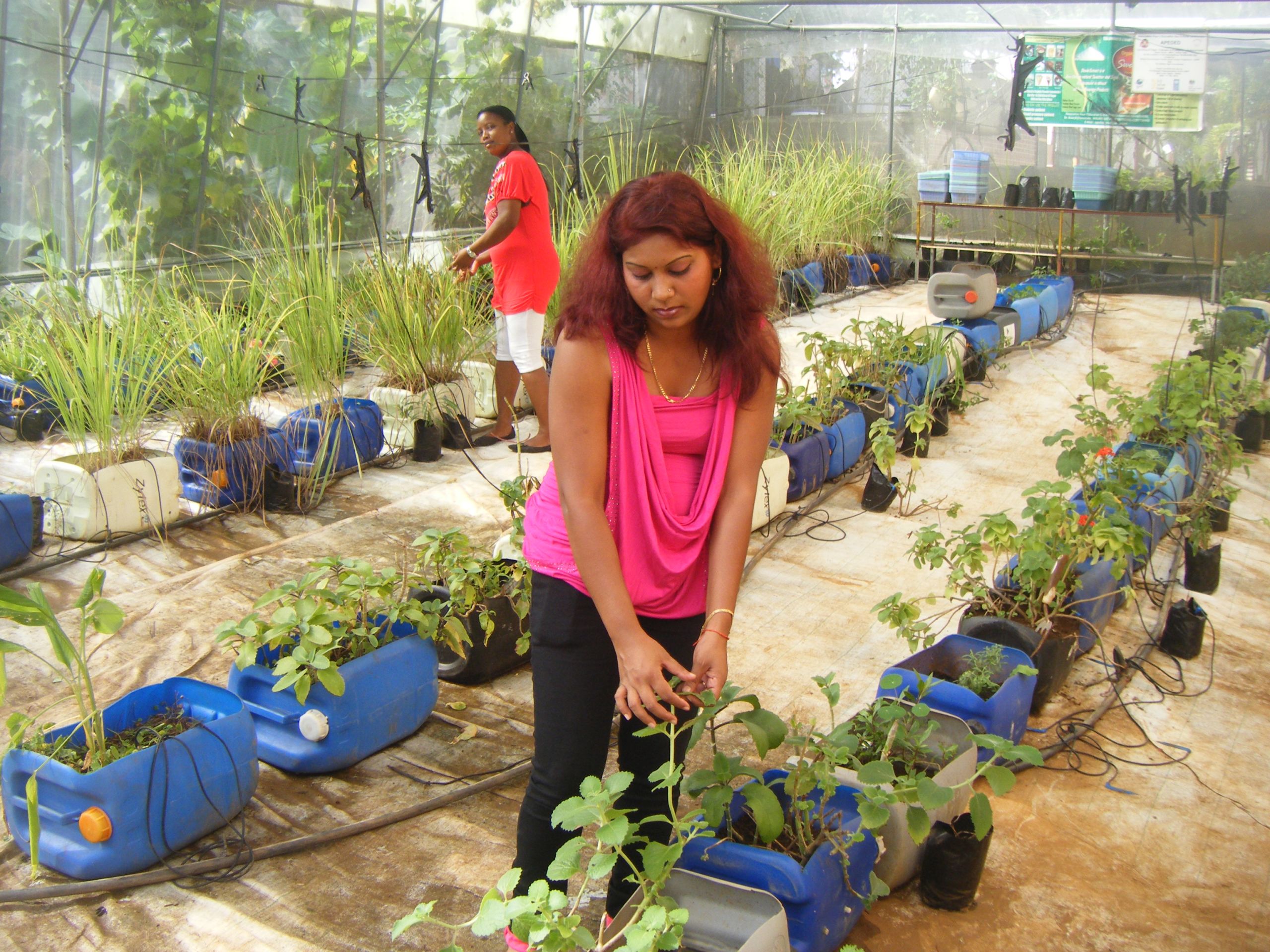
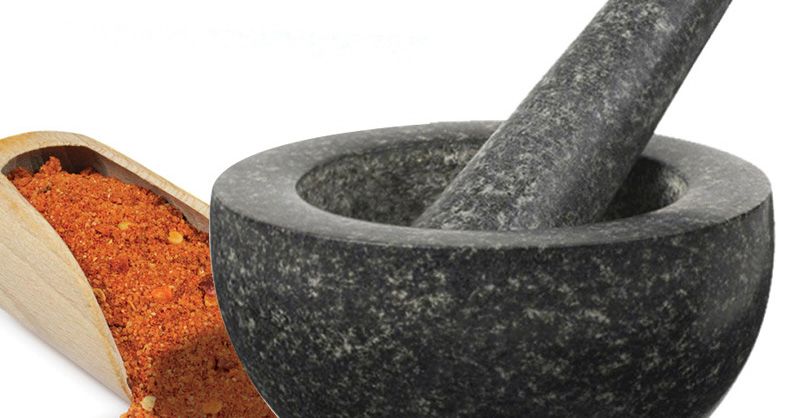
From Mauritius to the world
Using their traditional knowledge on medicinal plants, the women created their own brand Grandma’s Secret, it is the first copyrighted Mauritian brand of local medicinal and herbal teas.
Today, this women-led micro-enterprise produces 8,000 bags of 24 varieties of tea per month for national and international markets. The teas sold in the duty-free stores at the airports, and exported to France and China, among other countries.
“The income allowed me to take care of my children and to extend the size of my house which now has 5 rooms, one is even made of concrete. After one year I was appointed as a supervisor in the processing unit.” says Fabiola Numah, a textile worker who prior to the project was unemployed and lived in a 2 bedroom house of corrugated iron sheet with her family.
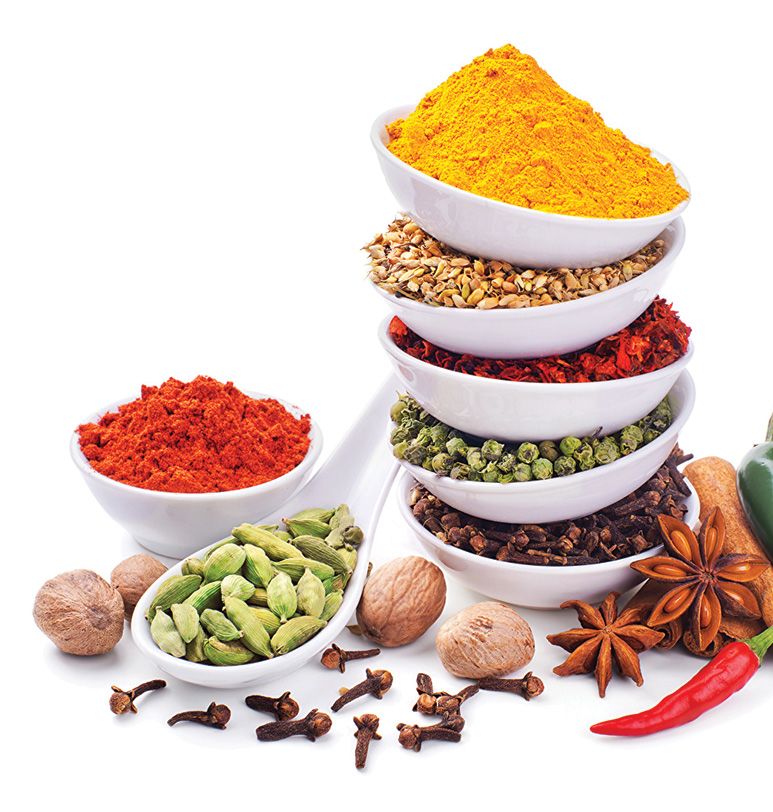
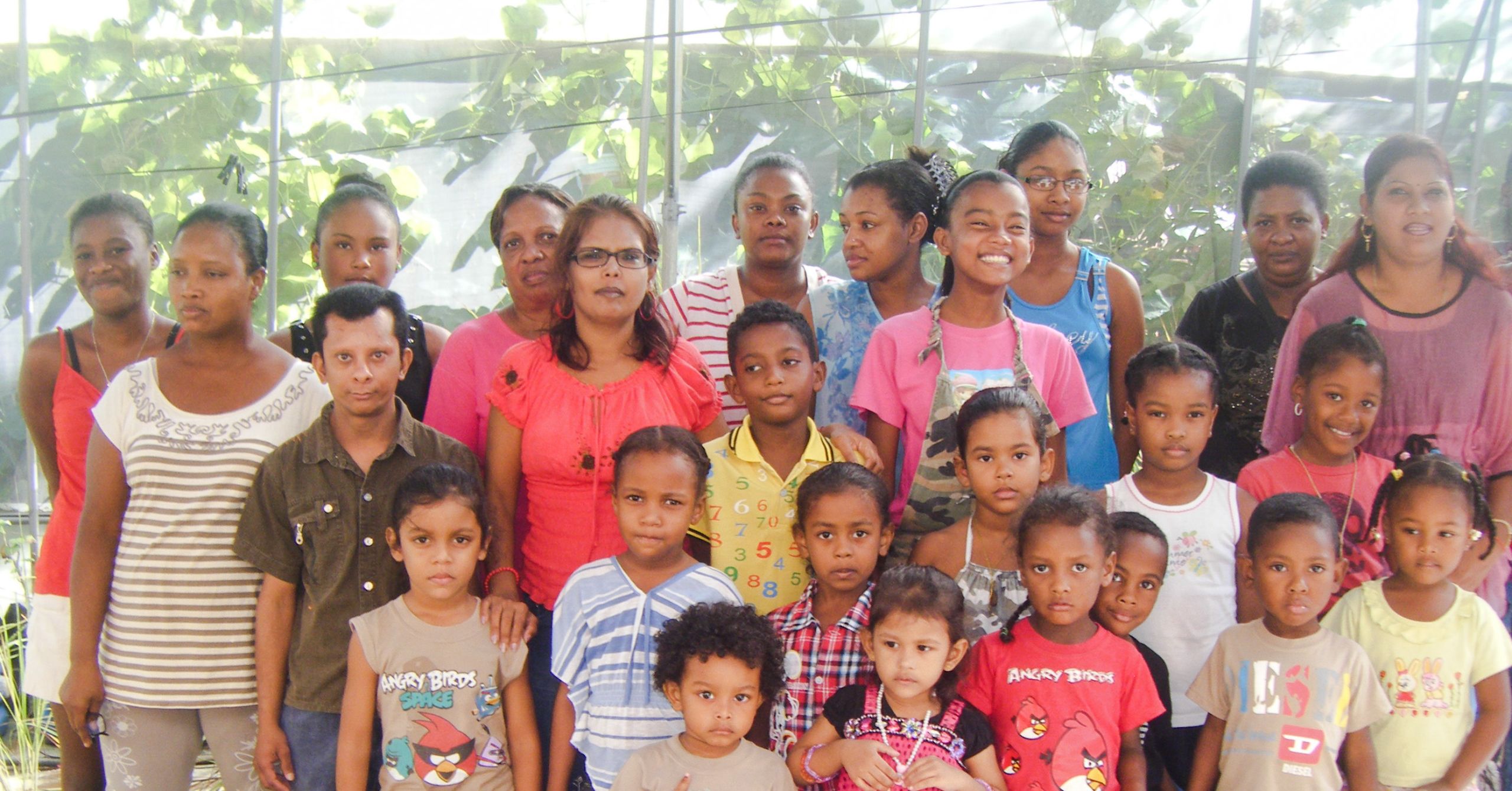
Grandma's Tea women entrepreneurs and their children
Grandma's Tea women entrepreneurs and their children
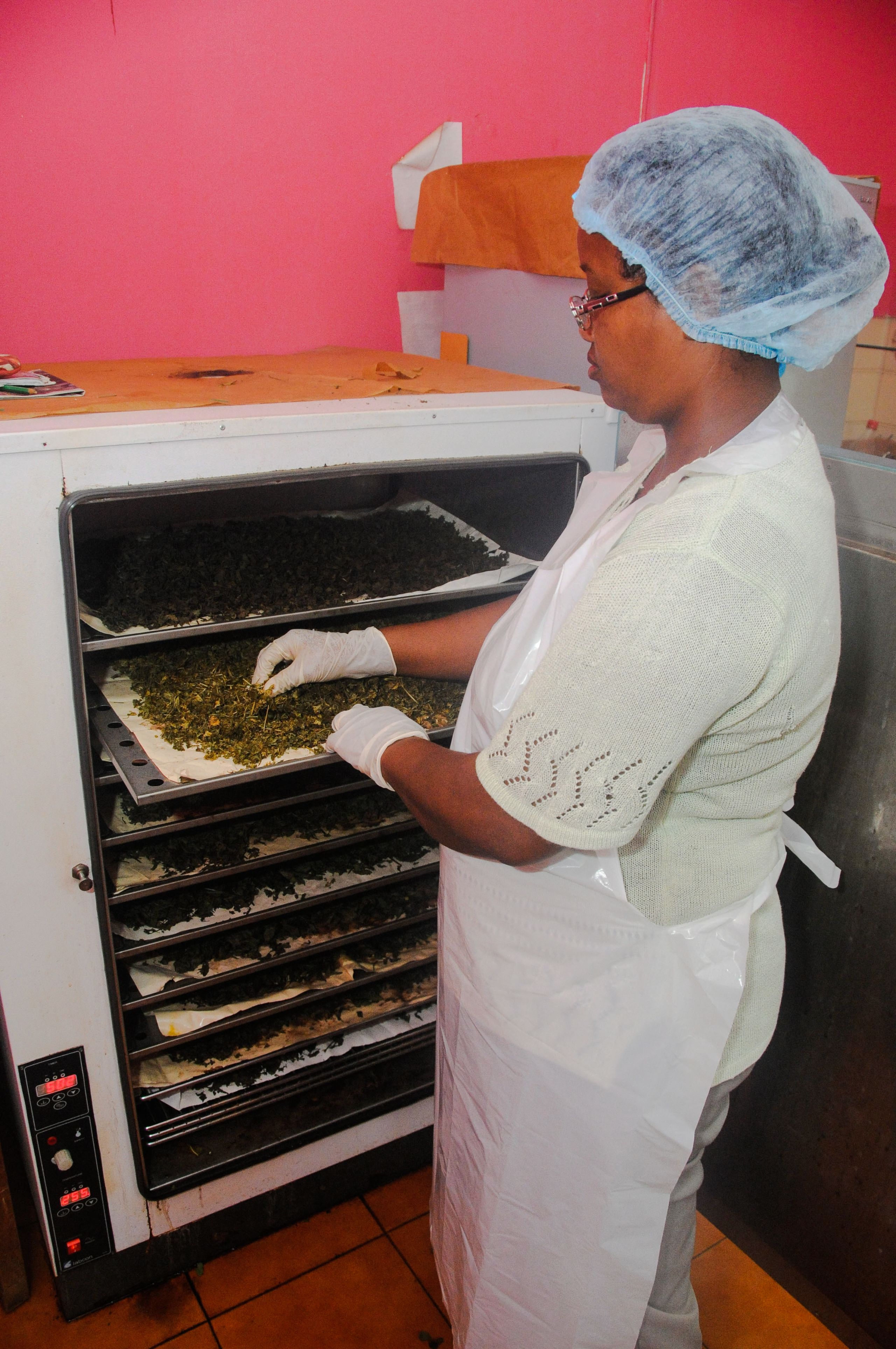
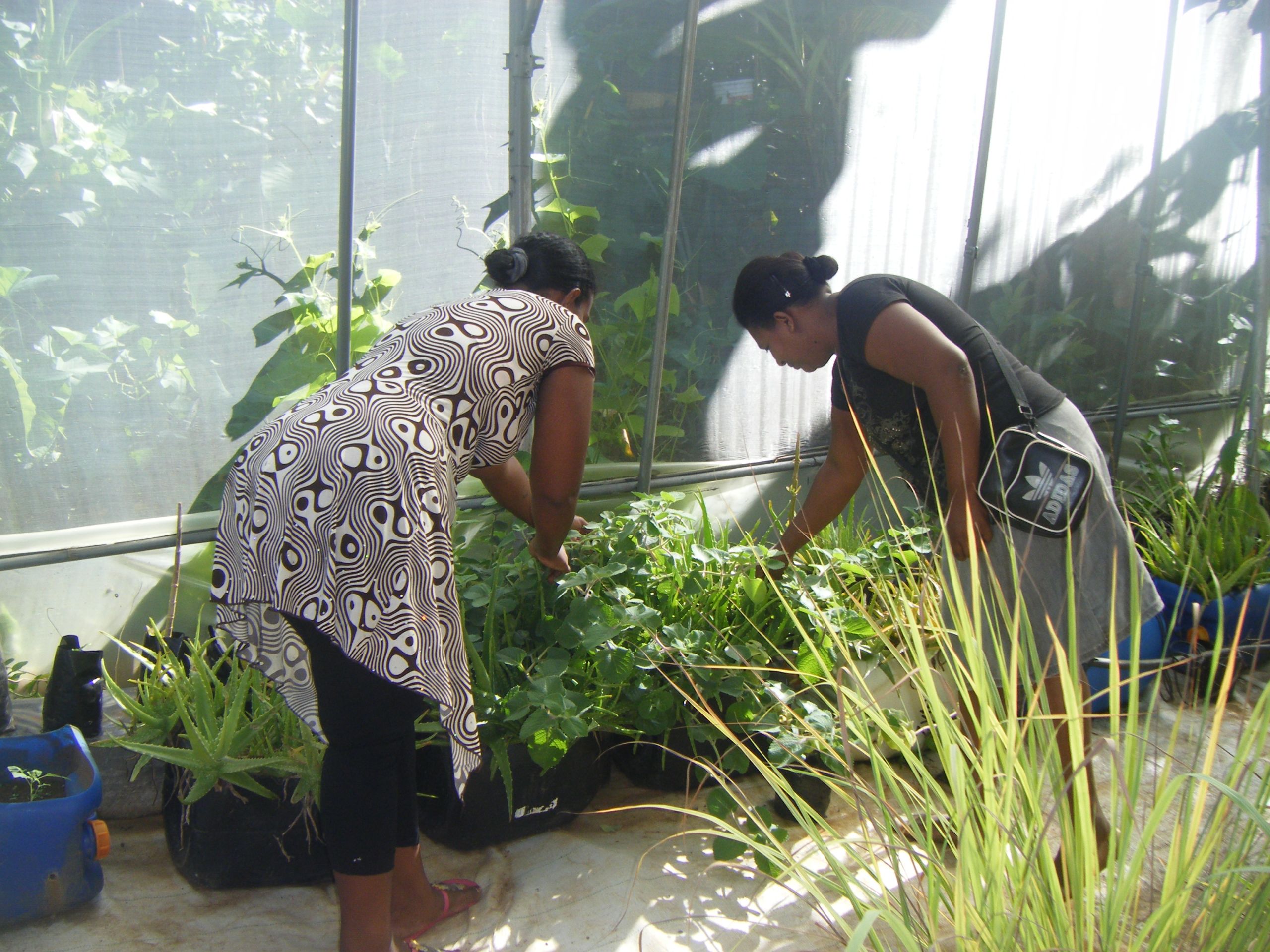
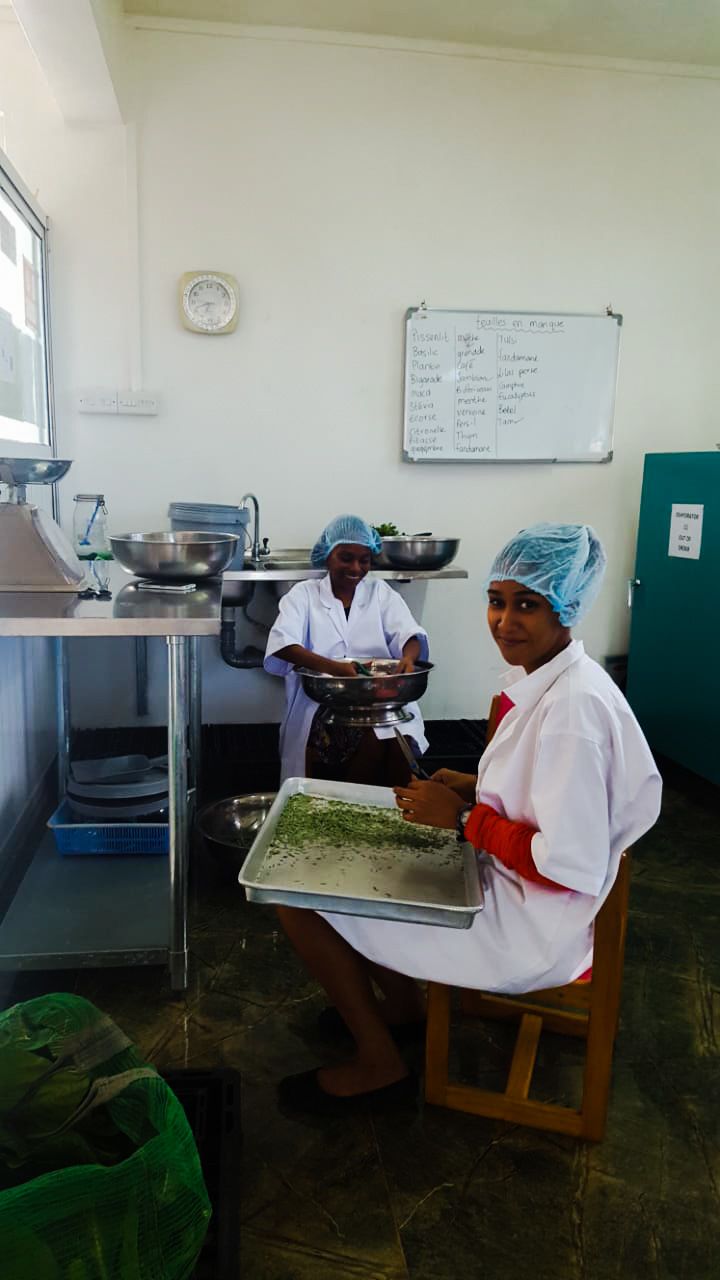
Each woman earns US$110-180 a month for three hours work per day, which helps them pay for education, healthcare and other expenses.
The company directly employs 20 women and 45 additional women, from around the country, from the sale of medicinal plants to APEDED through the “Buy Back Leaves” programme. Through this program, APEDED sells the women medicinal seedlings and later on buys the leaves from them to produce their herbal teas.
Moreover, the cultivation of medicinal plants is improving the health of the local community by enhancing their knowledge about the use of medicinal plants. More than 5,000 families now keeping medicinal plants in their gardens.
Anooradah also decided to pursue formal study on herbal medicine to research the effect of different types of herbal teas to specific health conditions. Recently, she received a PhD with a scholarship from India.
Women are further empowered by leading biodiversity conservation efforts via the cultivation of traditional medicinal plants that are endemic and native to the island. Their work helped raise community’s awareness of biodiversity and medicinal value, which had been forgotten.
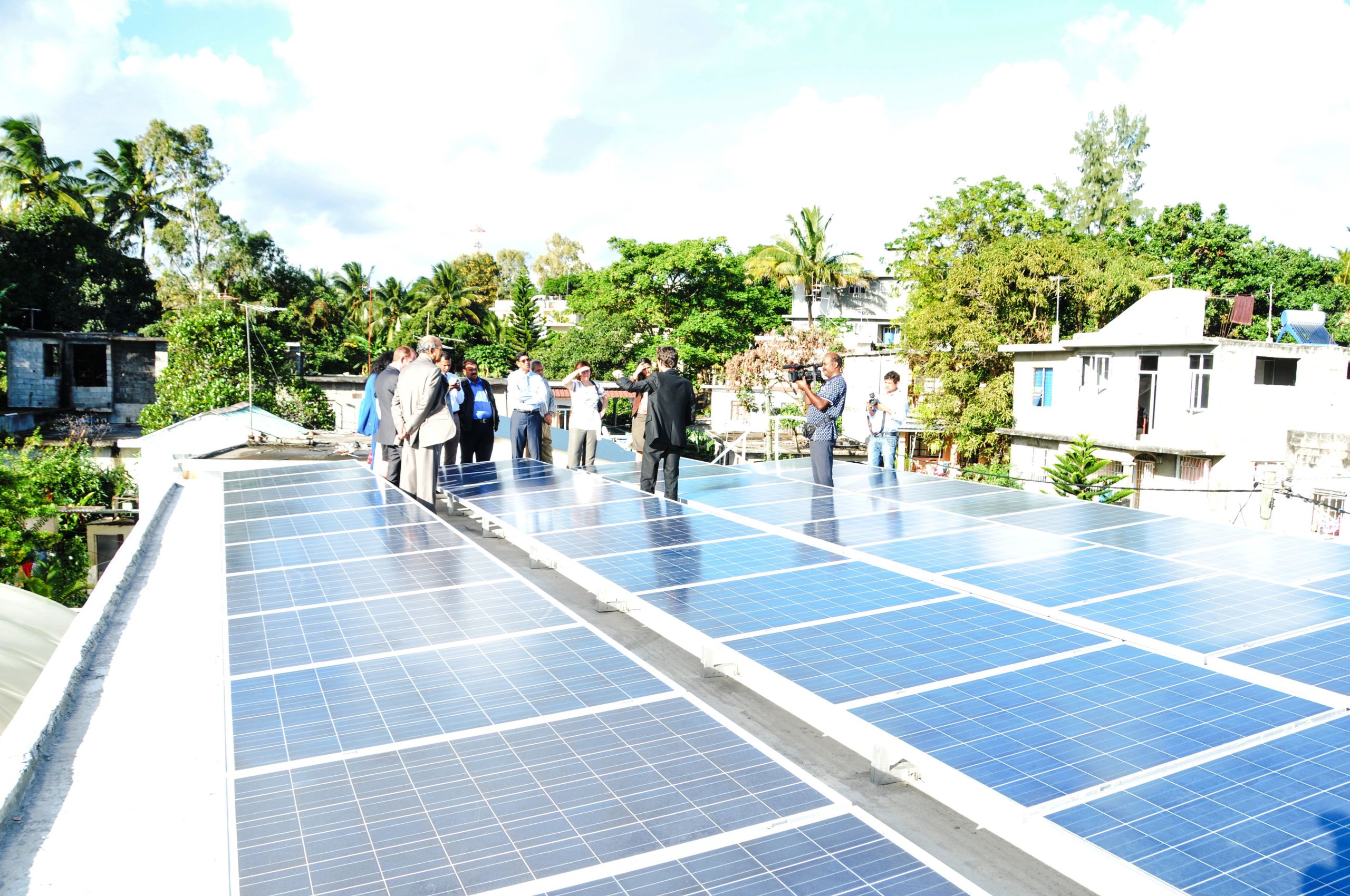
Women Pioneering in Clean Energy
Due to the success of the first project, the organization saw an increase in energy use for the dehydration of the medicinal plants. APEPED applied and received another grant from SGP, now to install a solar powered system in their small facility. For this purpose, the women financed the construction of a second floor in the existing building and the SGP grant was used to purchase and install photovoltaic solar panels on the roof top. The Central Electricity Board (CEB) granted the association permission to produce its own electricity through a government scheme.
The 48 photovoltaic solar panels installed generate 14,360 kWh of electricity annually, reducing carbon dioxide emissions by 10 tons annually.
As the association faces an increase in demand for its medicinal and herbal teas, it is now able to reduce its production costs and green-house gas emissions with the use of renewable energy and decrease its impact on climate change.
Women empowerment and increased social capital
The women involved in this project now have greater respect in their community and are contributing to the local economy.
Their self-confidence, self-reliance, and quality of life has improved significantly.
Thanks to the success of the project, many women have also learned how to run effective communication and media campaigns, and leverage resources from other international and national financial institutions and partners to scale up their initiatives on biodiversity protection and clean energy.
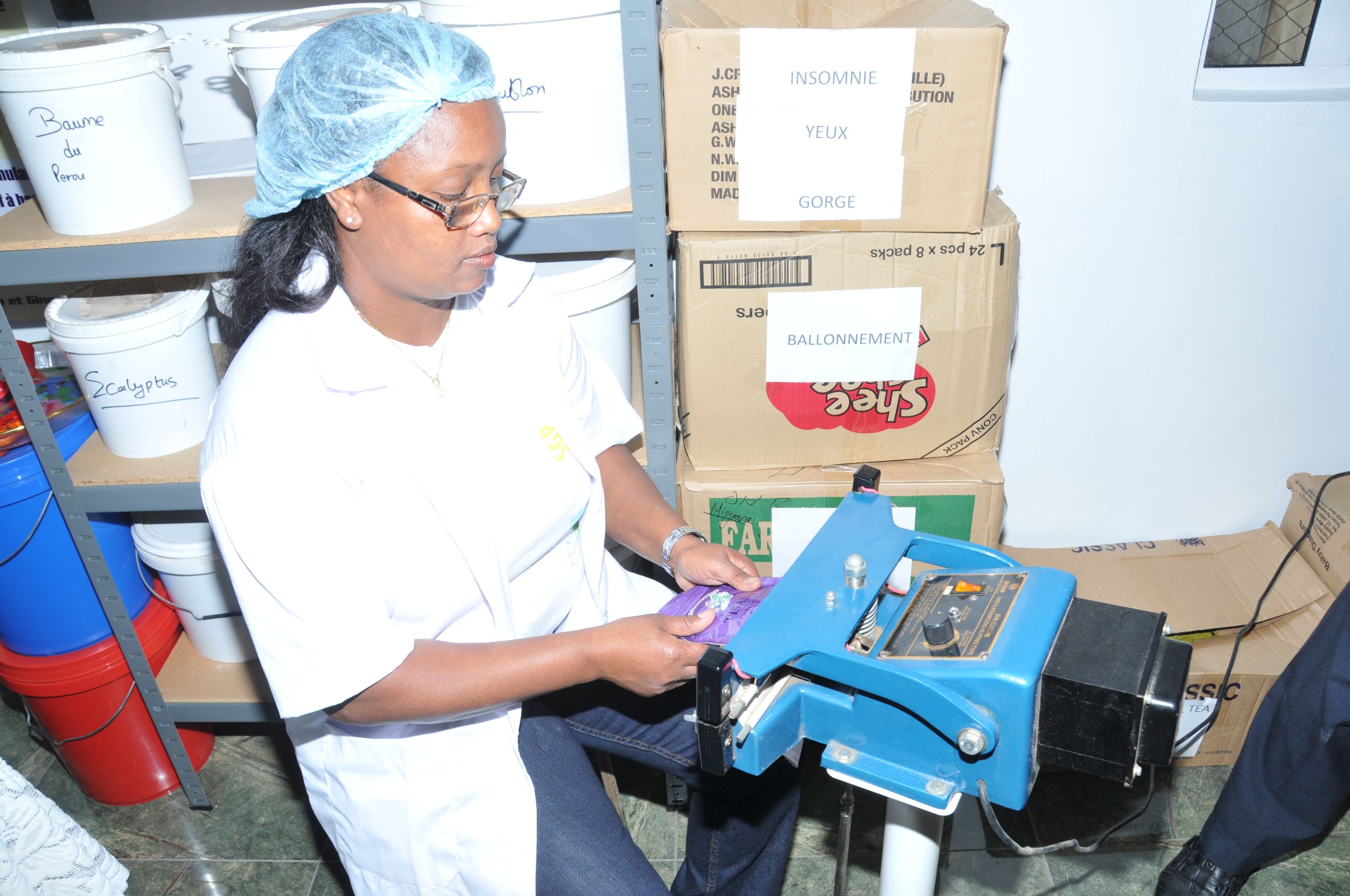
Supporting award-winning innovation
The Grandma’s Secret (Secret Grand-Mère in French) won the Enterprise Mauritius Emerging Exporters Gold Award in 2013. Similarly, Anooradah Poorun received the Green Africa Award in the category of African Women for Change (2013), as well as the Pride of India Leadership Award (2011) from the Government of India for her leadership role in social work.
On 8 March 2019, join the Small Grants Programme in celebrating women who play active roles in innovation and environmental conservation, accelerating the achievement of the SDGs.
For more information about SGP women-led projects check out our publication: Women as Environmental Stewards.
To learn more about our work in Mauritius, visit the SGP Mauritius Country Page.
Visit the SGP website for details on the overall Small Grants Programme.
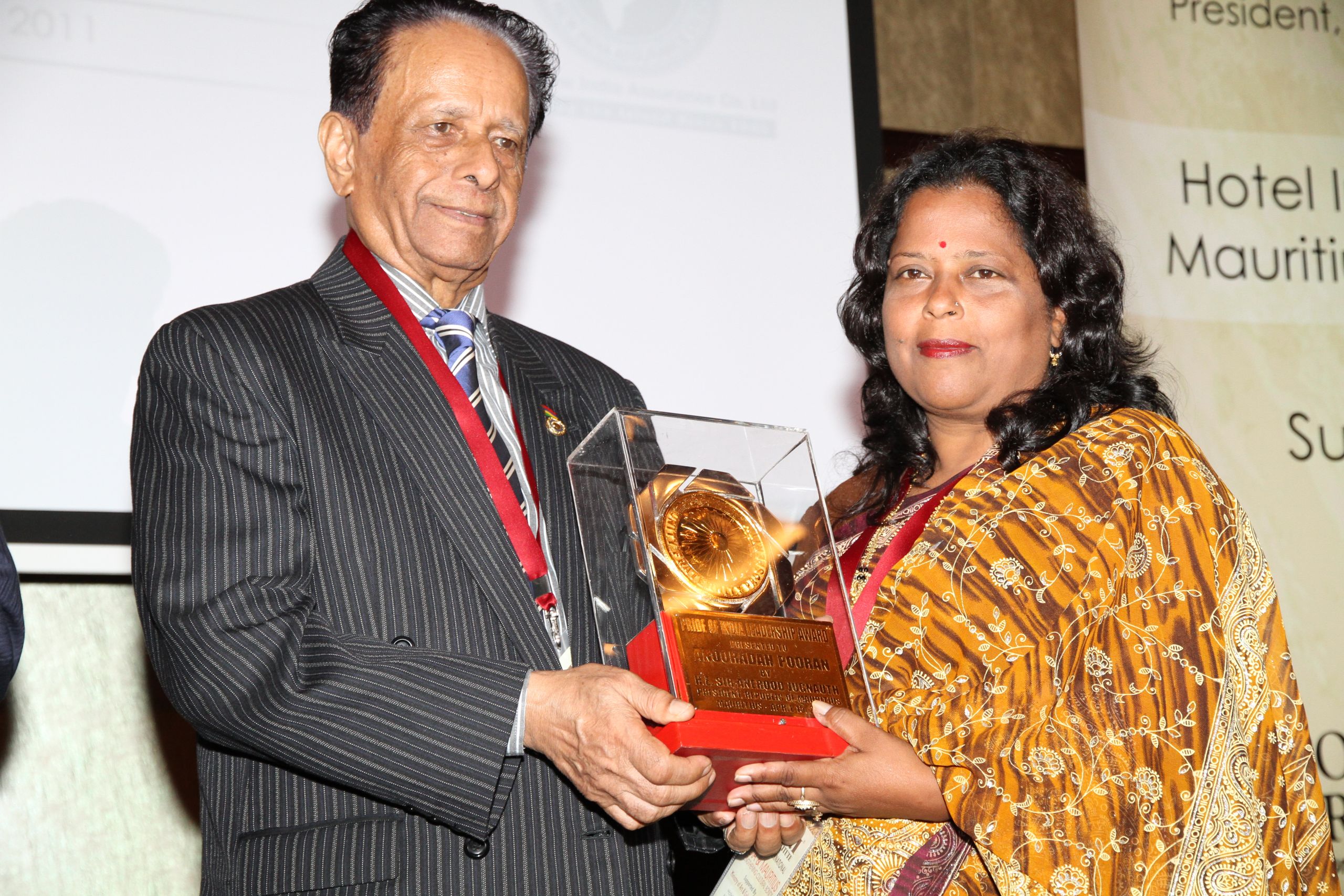
Price of India Leadership Award
Price of India Leadership Award

Story by Ana Maria Currea, Yue Wu / Photos: SGP Mauritius and Grandma's Secret
